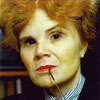Why Estonians Settled in Alberta
During the first decade of the 20th century the government of Prime Minister Wilfrid Laurier advertised in northern and eastern Europe the offer of free homesteads in the Canadian prairies to those willing to clear land and develop farms. This program became extremely popular and millions of Europeans facing poor prospects or living under repressive regimes emigrated to settle in the western provinces.
During this period, political and economic factors in Estonia led many families to emigrate to Alberta. Opposition to the Czarist regime and its Russification policy--the attempt to assimilate Estonians and other nationals in Russian-occupied eastern Europe in the late l9th and early 20th centuries--and economic difficulties making land acquisition almost impossible for the majority of small farmers, were among the main reasons for mass emigration at the turn of the century. While some agrarian reform took place in Estonia after the abortive Russian revolution of l905, the eldest son continued to inherit the family farm, leaving other siblings to look for land or jobs elsewhere.
With the l905 revolution, the advent of new ideologies including those of Marx and Engels, and the subsequent Estonian revolt against the Czarist regime and powerful German landlords led to new waves of economic and political refugees. Several of these new emigrés settled in the Sylvan Lake area.
Many of these newcomers believed it was easier to build a new life and a better society in the New World than to fight repression in their homelands. Their idealism and views on agrarian reform deeply affected the Alberta community. The settlers drained the marshes and established farm and food co-operatives. These ideals, which other European immigrants also brought with them to communities in Alberta and Saskatchewan, eventually led to the co-operative movement in Western Canada.









